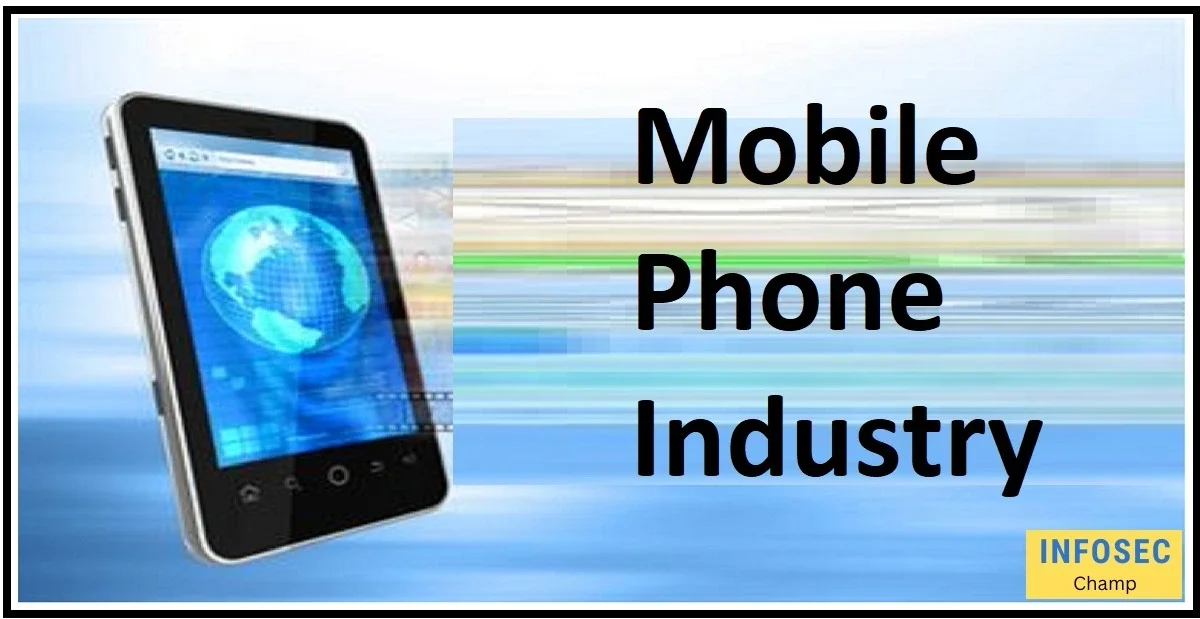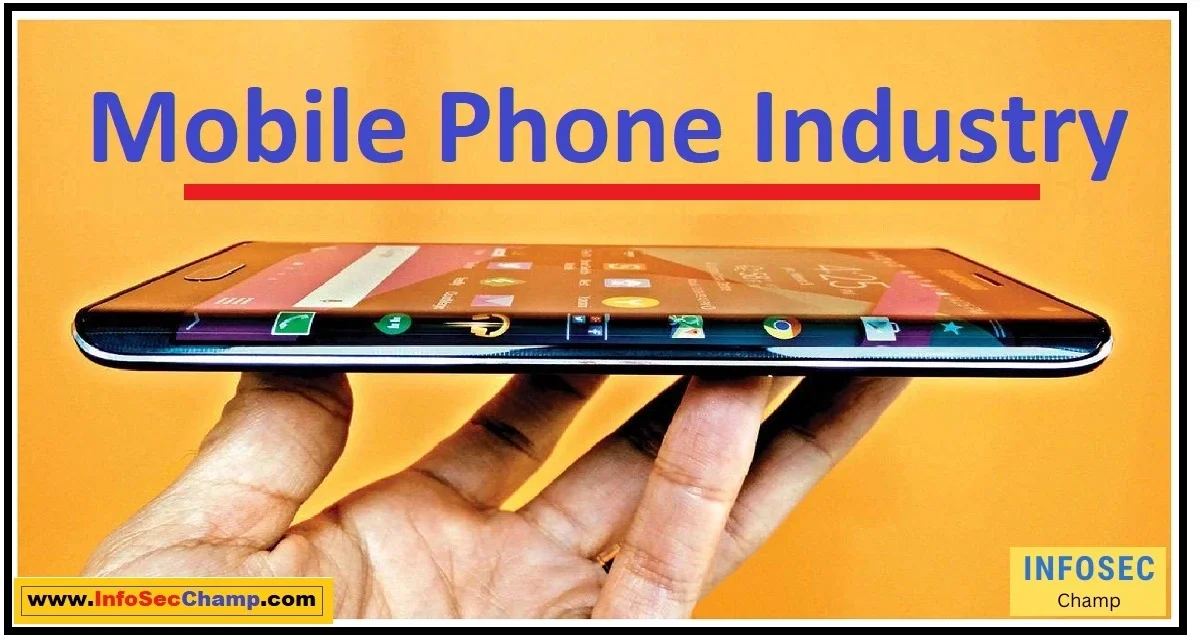The Future of the Mobile Phone Industry, A Game-Changing Technology You Can’t Afford to Miss!; New, ground-breaking technologies have become possible because of the mobile phone industry‘s explosive rise. The game-changing technology is not far off given how quickly mobile devices are evolving. The market is now more dominated than ever by the industry, which has expanded too much. But what will the mobile phone market do next? A new technological advancement is expected to fundamentally alter the playing field.
A new era of mobile phones could be started by this technology, which has the capacity to push the envelope and completely transform the market. The mobile phone industry’s future is here, and the game is altering once more. Keep up with the newest trends to ensure that you don’t miss out on the most anticipated technology of the decade, and be ready to be astounded. Are you prepared for what’s coming?
The Development of 5G Technologies
“The Emergence of 5G Technology: Revolutionizing the Way We Connect”
What is 5G technology and how is it transforming the way we connect?
- The fifth generation of cellular network technology, or 5G, is poised to fundamentally alter how we communicate with one another and the rest of the world.
- The technology allows us to connect more devices and generate more data since it has quicker download and upload rates, better latency, and larger network capacity.
- With the advent of 5G, we can anticipate breakthroughs in the fields of augmented and virtual reality, smart transportation, healthcare, and other sectors that depend on rapid data transfer rates.
- The technology has the potential to connect billions of devices, enable intelligent automation, and establish new business models and revenue streams.
- As 5G continues to spread throughout the world, we may anticipate seeing changes in how we work, live, and interact with the environment.
Artificial Intelligence Integration
Artificial intelligence (AI) integration is the process of integrating AI technology into various corporate activities to expedite procedures, automate tasks, and increase decision-making capabilities. Several firms are utilizing AI integration because it has the potential to alter the way we operate, saving time, and money, and boosting productivity.
The following are some advantages of AI integration:
- Predictive intelligence: Artificial intelligence (AI) can help organizations anticipate revenue, predict customer behavior, and foresee equipment breakdown before it occurs.
- Efficiency: AI can assist automate repetitive operations, giving workers more time to concentrate on more intricate and strategic duties. For instance, chatbots can assist customers with basic concerns, freeing up customer support agents to address more complicated issues.
- Personalization: Based on a customer’s previous searches or purchases, AI can assist in delivering personalized recommendations to them. Customer loyalty and satisfaction may rise as a result.
- Better decision-making: AI may assist organizations in making more informed decisions by evaluating enormous volumes of data and delivering insights that may not have been noticed otherwise. Also, it can assist in identifying prospective possibilities and hazards, enabling firms to take proactive action.
- Enhanced security: AI can examine network behavior and spot potential risks, enhancing security and reducing the chance of cyberattacks.
From automating routine administrative activities to developing accurate predictions and guiding decision-making, incorporating AI technology into businesses and sectors can result in significant optimization and simplification. Beyond chatbots and tailored recommendations, AI integration offers enhanced security measures and focused risk management.
Furthermore, the adaptability of AI technology using machine learning and deep learning can automate procedures that formerly required human interaction and manipulation, offering new efficiencies that raise production levels.
The advantages of integrating AI into the workplace are incalculable, ultimately leading to more effective and successful enterprises, whether for projecting sales, anticipating customer behavior, or detecting possible business prospects.

Increased Use of Augmented and Virtual Reality
How Augmented and Virtual Reality are Transforming Industry
In several businesses, augmented and virtual reality (AR and VR) have emerged as indispensable technologies. They are utilized in a variety of contexts, including marketing, education, healthcare, and entertainment. The rising use of AR and VR has increased engagement, enhanced operational efficiency, and produced novel consumer experiences.
These are a few examples of how AR and VR are now transforming several industries:
- Training and education: The use of AR and VR technology has improved the realism and effectiveness of simulations and training exercises. Without endangering actual patients, medical students can perform operations and procedures in a secure simulation environment. Similar to how professionals can use VR simulation to train for complex situations, military people, pilots, and other professionals can do the same.
- Retail and marketing: Marketers and retailers can now build immersive consumer experiences thanks to AR and VR technology. Virtual shops and product visualizations can improve customer engagement and offer a unique purchasing experience. Virtual tours of real estate properties can be offered using AR and VR, which can boost the effectiveness of house sales.
- Manufacturing and construction: AR and VR can boost operational effectiveness and cut costs in the manufacturing sector. By giving workers step-by-step directions, AR can help with difficult assembly processes. Similarly to this, VR can assist architects and construction engineers in visualizing and testing concepts prior to the start of construction.
- Entertainment and gaming: Thanks in part to AR and VR technology, the entertainment sector is fast evolving. They offer distinctive experiences for gamers and moviegoers, enhancing the immersiveness and engagement of entertainment like never before.
Greater Adoption of Biometric Authentication
Biometric Authentication: A Step Towards Improved Security and User Experience
Here are some crucial insights concerning the expanding trend of biometric authentication:
- Security: Biometric authentication is more secure than traditional authentication techniques like passwords or PINs because users are verified using their distinctive physical and behavioral characteristics, which are nearly impossible to duplicate or steal. Additionally, biometric data is encrypted and stored securely, lowering the risk of data breaches.
- Convenience: Biometric authentication eliminates the need for users to memorize and enter lengthy passwords or PINs. It is rapid, straightforward, and can be finished in a few seconds. It also eliminates the need for tangible tokens, such as smart cards, which users may lose or forget.
- Cost-effectiveness: Traditional authentication methods are frequently expensive to implement and maintain, particularly when managing large user bases. Biometric authentication, on the other hand, is more cost-effective because it does not require physical tokens and requires fewer staff members to manage passwords.
- Improved user experience: Biometric authentication provides a seamless, personalized, and intuitive user experience that lessens user annoyance, boosts client loyalty, and boosts productivity.
- Future-proofing: Biometric authentication delivers a future-proof, scalable solution that can adapt to changing technology and security concerns.
Enhanced Battery Life and Charging Speeds
Recent developments in battery technology have improved battery life and charging times. With these enhancements, customers can use their smartphones for longer periods of time without interruption and still enjoy quick and effective charging.
The following are some advantages that consumers can enjoy from longer battery life and faster charging times:
- Minimal downtime: With quicker charging rates, users can quickly recharge their devices while on the go without being concerned about running out of battery life. Those who must use their gadgets regularly and for extended periods of time may find this to be especially helpful.
- Longer battery life: Technological advancements in batteries have made it possible to create batteries that can carry more charge, leading to longer battery life. As a result, consumers may use their gadgets for extended periods of time while being productive and entertained.
- Better and faster gadget performance: Users can anticipate improved device performance thanks to longer battery life. This is so that gadgets with a full charge can function easily and effectively, as opposed to those with a low battery, which tend to slow down
- More convenience: Those who use their devices frequently will find it more convenient thanks to longer battery life and faster charging times. Users may enjoy these activities for extended periods of time without worrying about their devices running out of power, whether they are working on the go, watching films, or playing games.
- Sustainability: Users may lessen their environmental impact by using less energy to recharge their devices thanks to better battery life and charging speeds.
Overall, improved battery life and charging times have had a big impact on how consumers use their smartphones. These developments give users more convenience, better gadget performance, and a more environmentally friendly way to use technology.

FAQ:
What impact do technology trends have on the mobile phone industry?
Technological changes have a significant impact on the mobile phone market by affecting the features and capabilities that consumers expect from their handsets. Smartphone makers must modify their offers to stay competitive and satisfy shifting customer expectations as new technologies, such as 5G and artificial intelligence, emerge.
What is 5G technology and how does it affect the smartphone market?
5G technology, which promises faster speeds, reduced latency, and more capacity than current 4G networks, is the next generation of mobile network technology. As 5G is deployed internationally, it will open up new smartphone use cases and experiences, like augmented and virtual reality, real-time 4K video streaming, and seamless cloud gaming. Increased sales of smartphones with 5G capabilities are most likely to result from this, and other manufacturers will be compelled to include the technology in their products as well.
Can you explain how artificial intelligence is integrated into smartphones?
Artificial intelligence is incorporated into cell phones through a range of functions and applications. Virtual assistants like Apple’s Siri and Google Assistant, which employ machine learning and natural language processing to comprehend and respond to user queries, are some of the most popular examples. By monitoring user behavior and preferences to enhance the smartphone experience, AI may also be used to enhance camera performance, power management, and app suggestions.
What are augmented and virtual reality and how are they used in mobile phones?
Virtual reality immerses the user in a simulated environment, whereas augmented reality integrates digital information with the user’s physical environment. These are employed in smartphones through specialized apps that let people experience these technologies through their phone screens and sensors.
How does biometric authentication enhance the security of mobile phones?
Biometric authentication employs a person’s distinctive physical attributes, such as fingerprints and face recognition, to confirm their identity and authorize access to their mobile phone. This improves security because biometric information is more difficult to fake or steal than a password or PIN.

